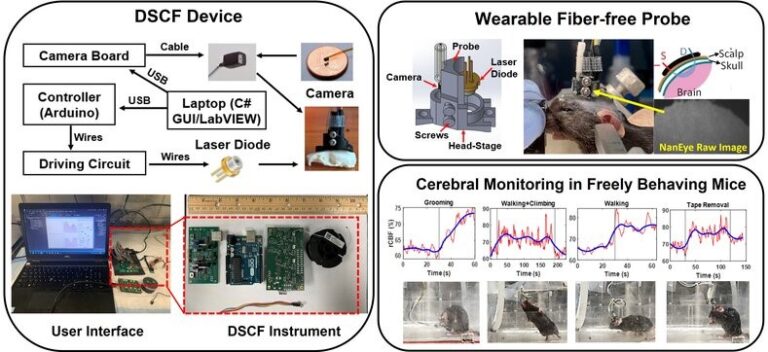Real-time and continuous monitoring of brain hemodynamics in freely behaving subjects advances our understanding of cognitive processing and adaptive behavior. Existing technologies are lacking in this capability or need procedures that are invasive and/or otherwise impede brain assessments during social behavioral conditions, exercise, and sleep.
We have developed a wearable, fiber-free, near-infrared diffuse speckle contrast flowmetry (DSCF) probe for continuous monitoring of cerebral blood flow (CBF) in freely behaving mice. The DSCF uses a small laser diode as focused point source for deep tissue penetration and a tiny CMOS camera as a high-density 2D detector array to detect spontaneous spatial fluctuations of diffuse laser speckles, resulting from movement of red blood cells in the deep brain (i.e., CBF). The use of this wearable, miniaturized, fiber-free, DSCF probe allows no craniotomy, minimally invasive probe implantation, and minimal restraint of the awake animal.
The DSCF was validated against a comparable diffuse correlation spectroscopy (DCS) system in anesthetized mice during CO2 inhalation. Full capability was then demonstrated using CO2 inhalation on mice in an anesthetized then freely behaving state. Significant correlations were found between measurements with the new DSCF design and DCS standard. The system successfully detected relative cerebral blood flow (rCBF) responses to CO2-induced hypercapnia in both anesthetized and freely behaving mice. Collecting rCBF and activity information together during natural behaviors provides realistic physiological results and opens the path to exploring their correlations with pathophysiological conditions.

